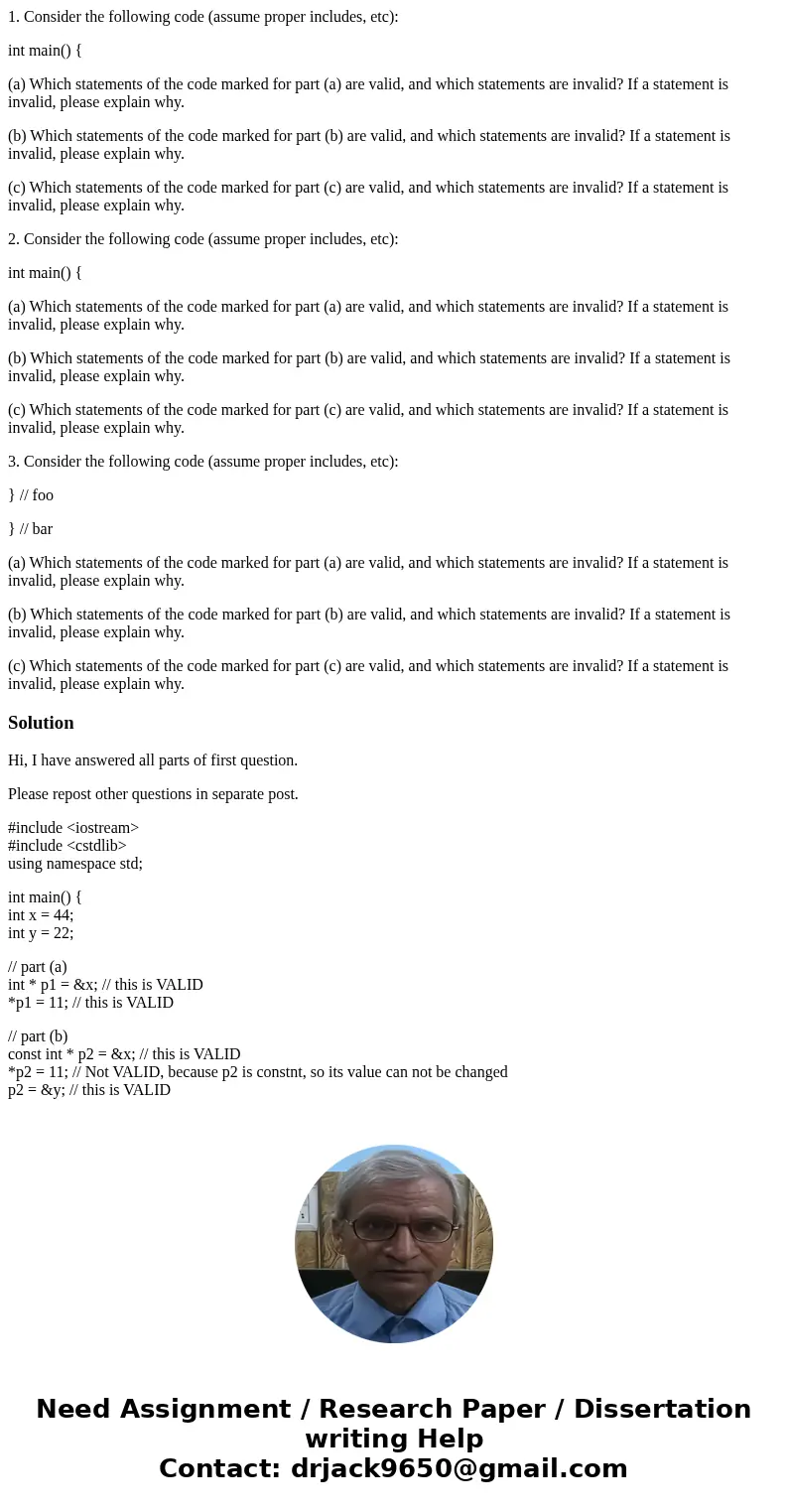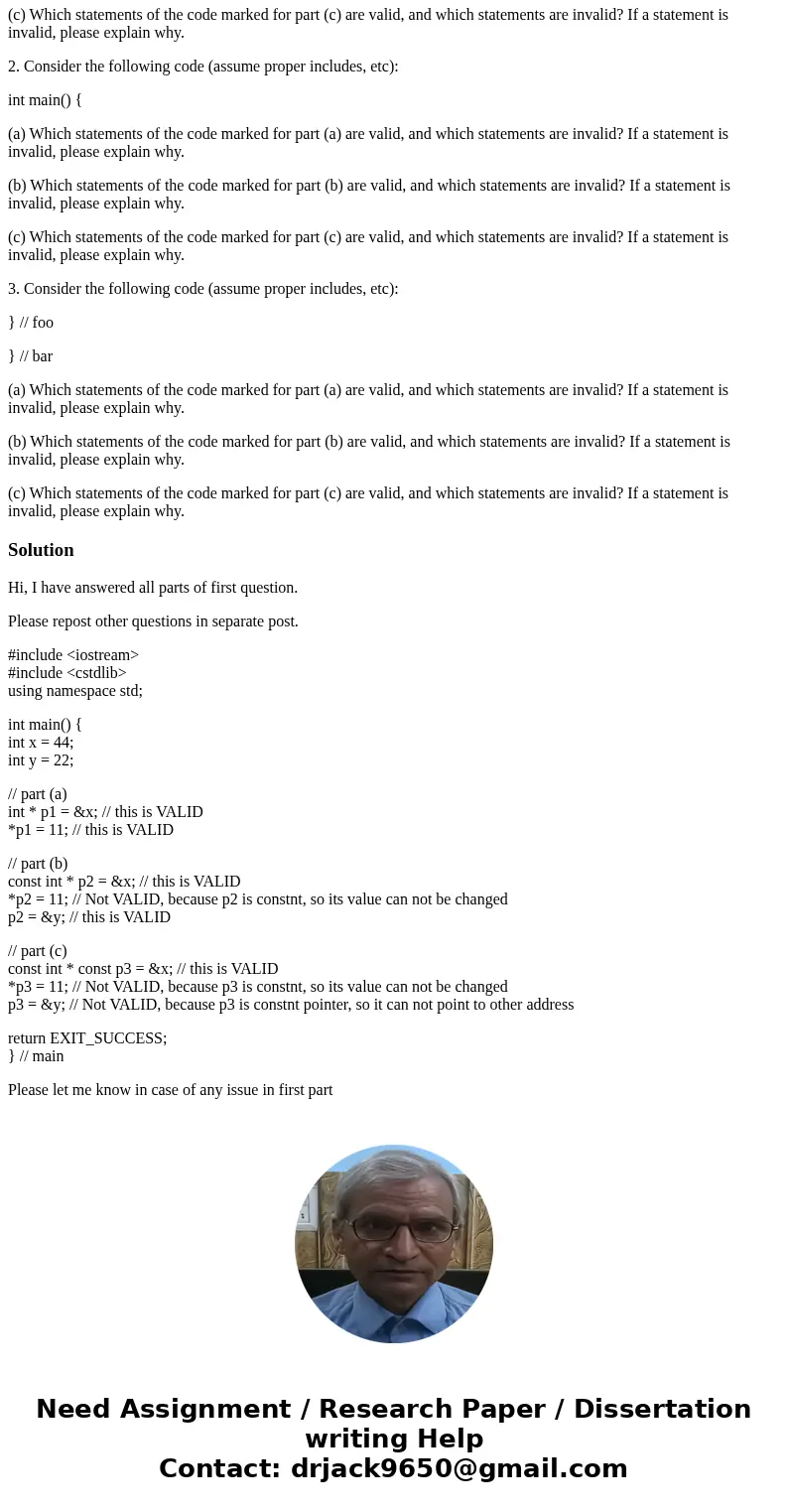1 Consider the following code assume proper includes etc int
1. Consider the following code (assume proper includes, etc):
int main() {
(a) Which statements of the code marked for part (a) are valid, and which statements are invalid? If a statement is invalid, please explain why.
(b) Which statements of the code marked for part (b) are valid, and which statements are invalid? If a statement is invalid, please explain why.
(c) Which statements of the code marked for part (c) are valid, and which statements are invalid? If a statement is invalid, please explain why.
2. Consider the following code (assume proper includes, etc):
int main() {
(a) Which statements of the code marked for part (a) are valid, and which statements are invalid? If a statement is invalid, please explain why.
(b) Which statements of the code marked for part (b) are valid, and which statements are invalid? If a statement is invalid, please explain why.
(c) Which statements of the code marked for part (c) are valid, and which statements are invalid? If a statement is invalid, please explain why.
3. Consider the following code (assume proper includes, etc):
} // foo
} // bar
(a) Which statements of the code marked for part (a) are valid, and which statements are invalid? If a statement is invalid, please explain why.
(b) Which statements of the code marked for part (b) are valid, and which statements are invalid? If a statement is invalid, please explain why.
(c) Which statements of the code marked for part (c) are valid, and which statements are invalid? If a statement is invalid, please explain why.
Solution
Hi, I have answered all parts of first question.
Please repost other questions in separate post.
#include <iostream>
#include <cstdlib>
using namespace std;
int main() {
int x = 44;
int y = 22;
// part (a)
int * p1 = &x; // this is VALID
*p1 = 11; // this is VALID
// part (b)
const int * p2 = &x; // this is VALID
*p2 = 11; // Not VALID, because p2 is constnt, so its value can not be changed
p2 = &y; // this is VALID
// part (c)
const int * const p3 = &x; // this is VALID
*p3 = 11; // Not VALID, because p3 is constnt, so its value can not be changed
p3 = &y; // Not VALID, because p3 is constnt pointer, so it can not point to other address
return EXIT_SUCCESS;
} // main
Please let me know in case of any issue in first part


 Homework Sourse
Homework Sourse